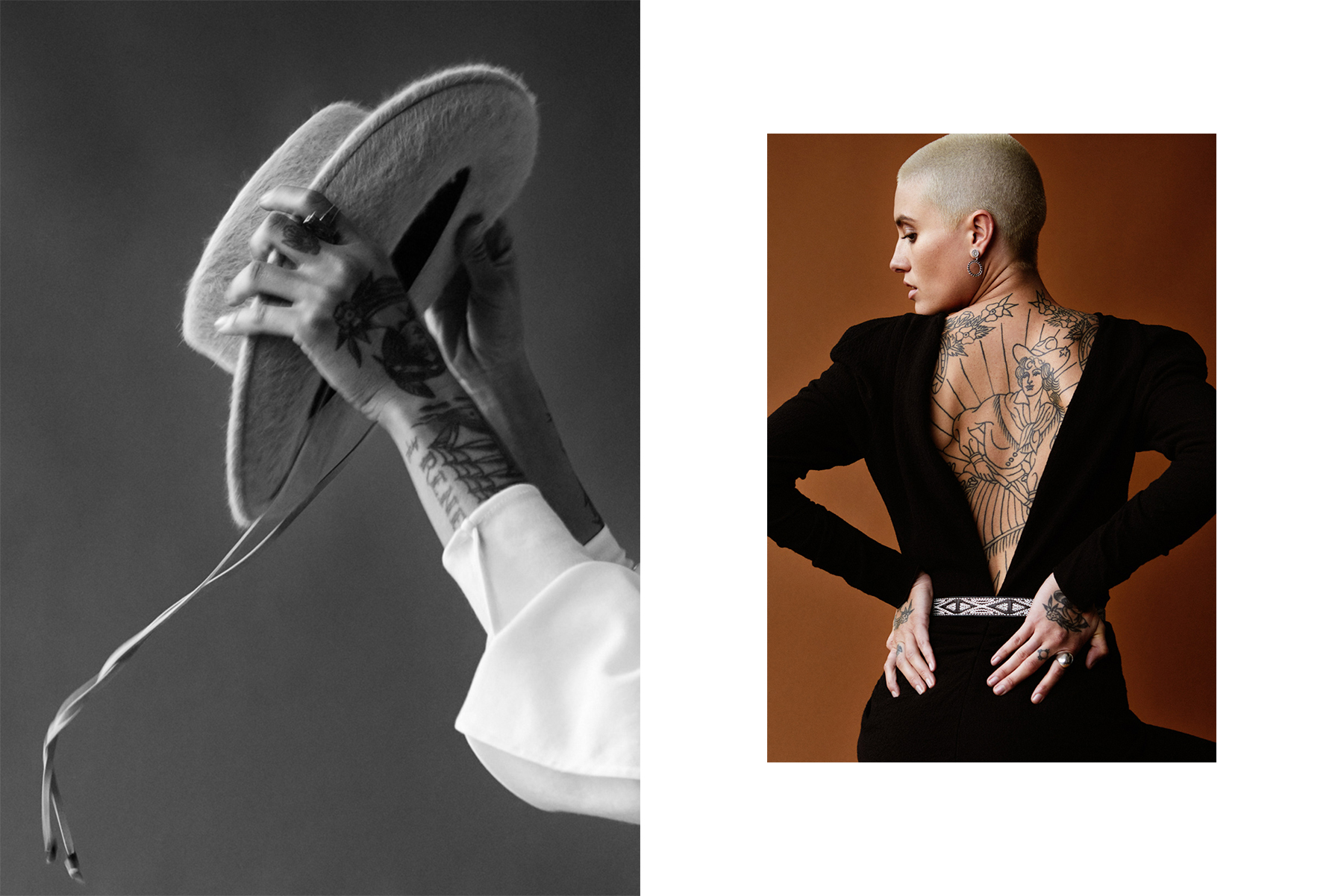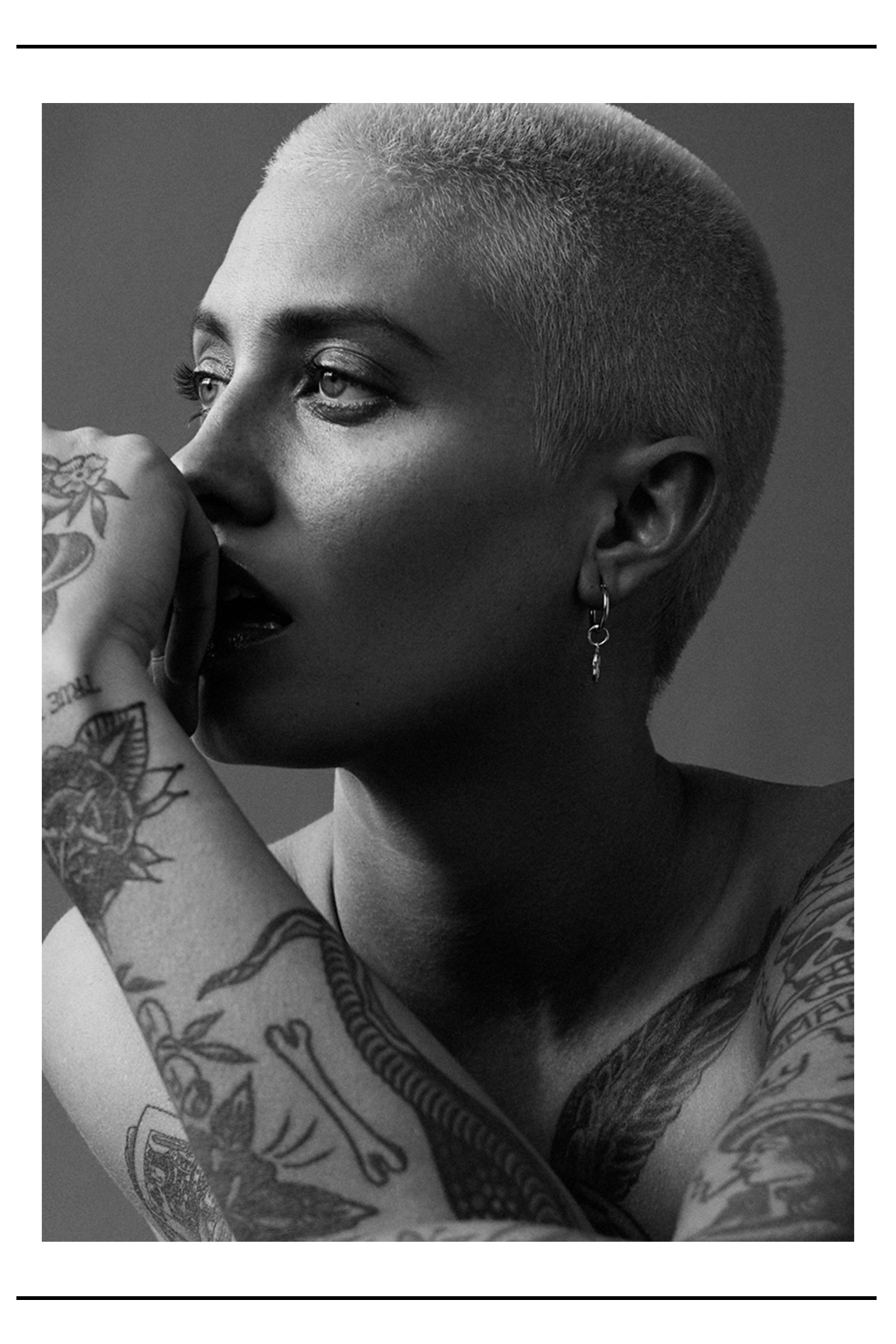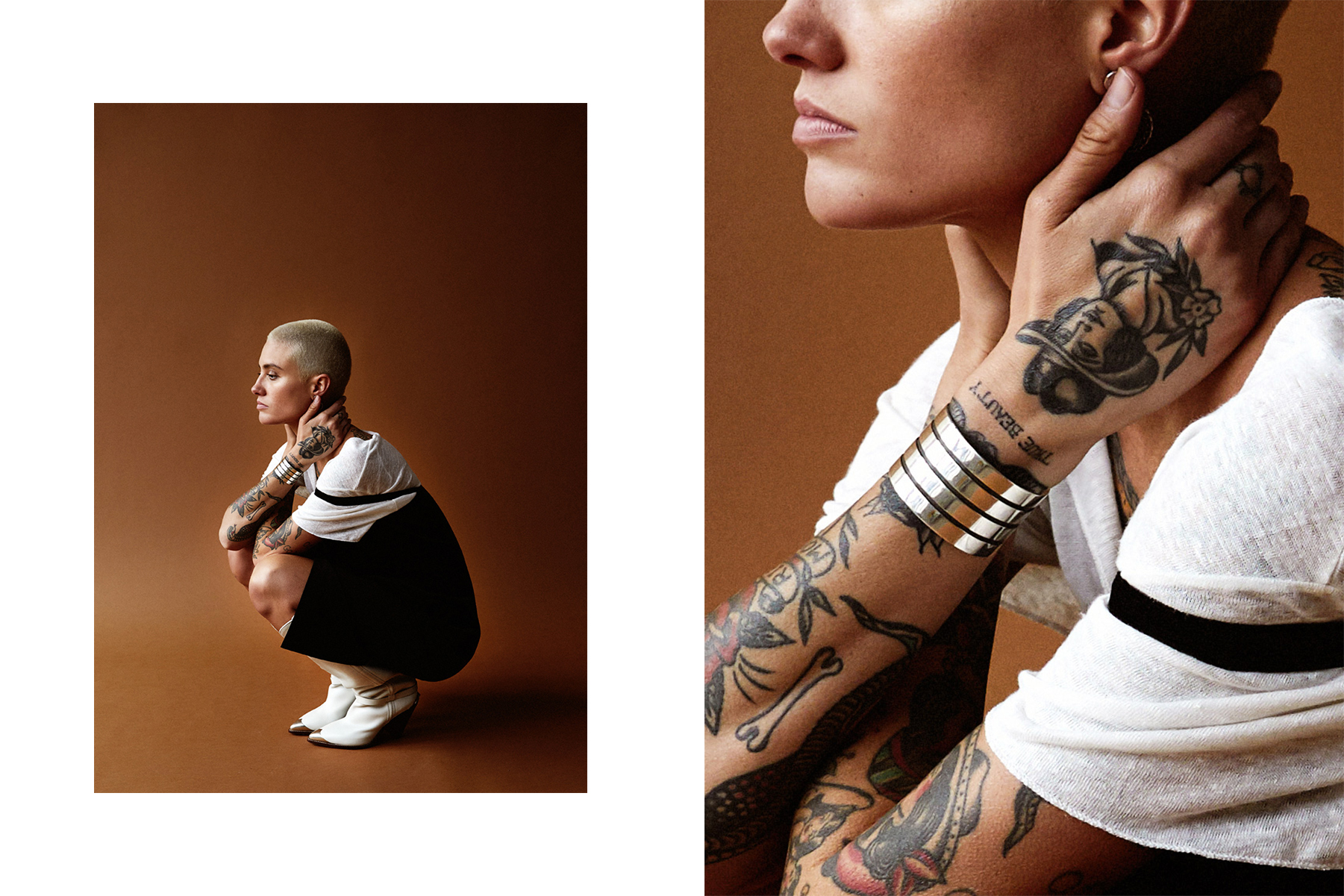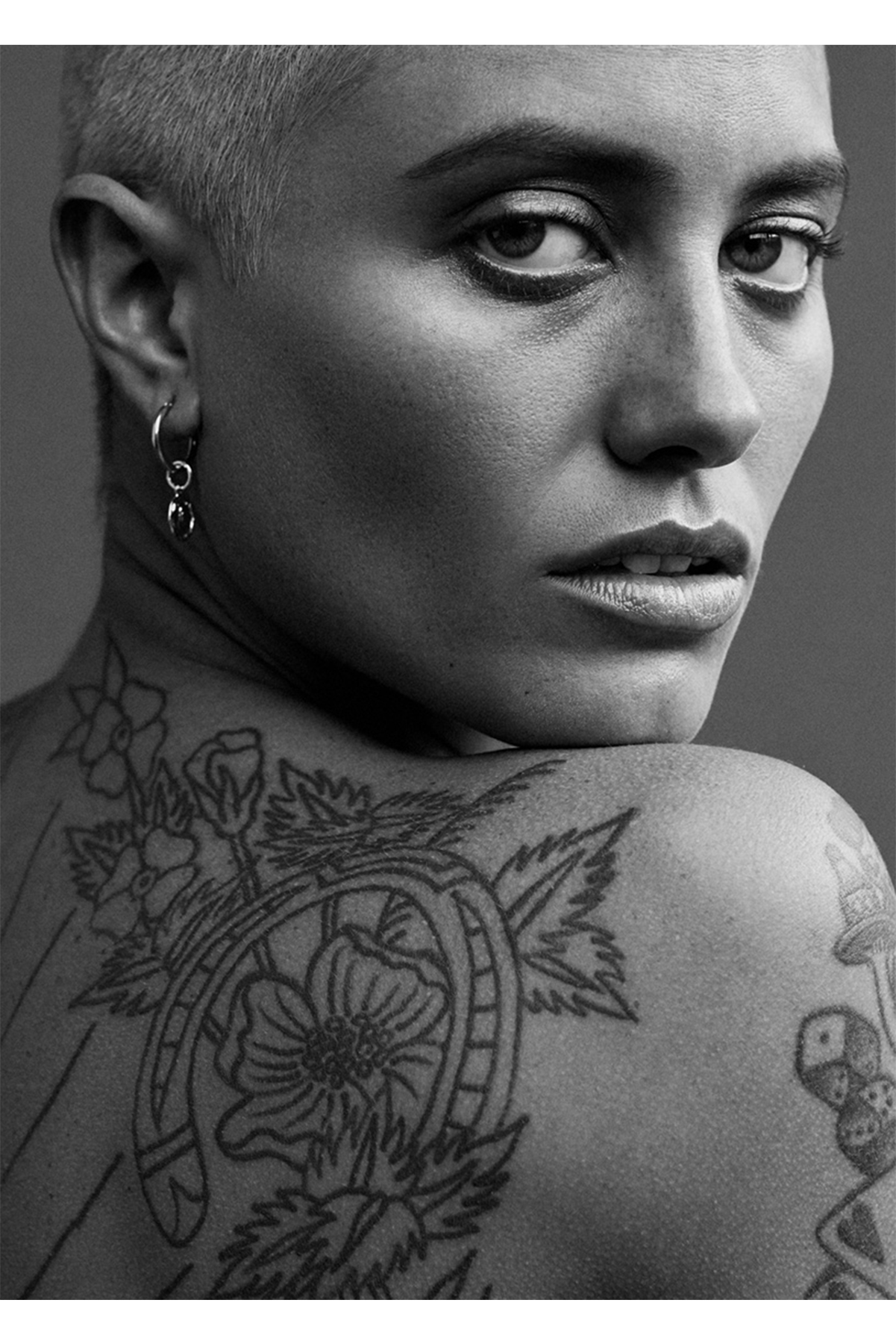Usually, when conducting an interview for a story with a subject, I do my research then suggest a glass of vino-style catch-up, or a phone call when said subject is in another city. In this case Los Angeles. Due to the dreaded trans-Pacific time differences, and TJ’s hectic schedule – instead of talking on the phone – we settled on an email chat. Then, a delightfully spontaneous face time video request came through with the note, “I thought we should chat, get to know each other a little bit, and talk over my questions.” from TJ. Ok. Borrowed voice, from my own brain.
TJ is warm. Like a cup of tea and a warm blanket, on those Sydney days between seasons. They are engaging, witty and have strength – in character, opinion, and intellectualising their experience. I wrote these notes in my iPhone notes, approximately 3 mins into our video chat.
Perhaps we connected lightning fast because we have a somewhat shared experience – in the context of coming out – something we laughed through as we reminisced about discovering our sexual identities. We both subscribe to the importance of self-discovery and what it means to sit in true self (a concept Alison Rice on OFFLINE, has inspired within me.)
In an honest conversation, TJ is unapologetic in their choices and essentially how they carry themselves, dress, want to be referred to (Editors note: they/them are their pronouns, for context) and choose to exist in the world,– it’s additive, needed, and fucking refreshing.
EJ: On the subject of style, I know that when I first came out I really struggled with the ways in which I felt I needed to present myself because I didn’t want to be assumed as straight, which made me question a lot about my physical identity and what that looks like. Was it a process for you too to reach a point in just feeling like ‘you’ despite how you do or do not choose to label yourself?
TJ: Fuck Yes! I think myself & most queers struggle with figuring out how to express their true physical identity, especially with style. We come from a society that is hyper binary. Boys wear masculine clothes and girls wear feminine clothes. The beauty in it is that queers are helping to blur those strict societal binary lines by being their true selves. Since my younger years, I’ve consistently struggled with my physical identity.
It’s taken years to break down what society has taught me about the spectrum of masculine and feminine. When I started my journey of transitioning into my true self I was wary of presenting masculine to my family and peers. Toxic masculinity corrupted how I viewed myself for years. Most days I hated looking at myself in the mirror; I hated my physical form. For a while, I struggled with thinking I wanted to transition. This feeling came from not liking being a woman and being queer. It didn’t stem from how I truly felt but it was because of what I’d been exposed to. I was suppressed by my environment.
I thought being masculine meant I had to be a man. I knew that men were more respected and had more freedom with their bodies. I wanted that. But being a man was ultimately not going to give me what I wanted. That’s when my long journey of self-discovery started. I couldn’t stand to keep hating and hurting myself. In time, I came to the conclusion that I didn’t have to be a man to embrace my masculinity, nor did I need acceptance from others. I turned my pain and growth into breaking boundaries and living my truth to inspire others.
EJ: Was this influenced at all working in fashion? How so?
TJ: To be honest, no. I can confidently say who I am, including my style, is a direct outcome of my innermost personal journey. My Grandma has a lot to do with it. She gave me my first pair of blue jeans with a white tee. She wholeheartedly supported me being a ‘Tomboy’. At the time, that was extremely rare where I grew up. I feel as though because of who I am, I impact industry normalities more than the industry influences me.
EJ: Something I love about the LGBTQI+ community is the acceptance and diversity of the bodies that exist within it. I often think about this juxtaposed by the fashion industry’s (sometimes) unrealistic standards of beauty. Has your perception of yourself been intersected by this drastic difference after working as a model?
TJ: Yes, in the way that it has confirmed what I already know about the fact that queer human beings can and should be accurately and authentically represented in the media. I’m grateful to be able to build my platform via modelling. I’m aware that I’m not the typical model we’ve all typically been shown, but I’m happy to be a part of the change. The world is starving for it; the world needs it.
EJ: Fashion has always embraced the idea of androgyny, and it’s great to finally see members of the LGBTQI+ community feeling safe, recognised, and respected within these channels. Do you think we still have a long way to go with inclusivity in the fashion and beauty industry? What would you like to see more of?
TJ: Yes, we have made progress but there’s unlimited progress to be made. There’s plenty of different human beings that exist and are not represented in the fashion and beauty industry. I want to see more POC, disabled people, and more models that stand behind a positive message. On a personal level, I’d like to see women’s and men’s fashion become more intertwined. I want to experience more unisex fashion. There are so many human beings between the strict standards and binaries that are projected onto the common population by the industry that need representation. Let me wear a suit & a dress! Even though I hate dresses.
EJ: How would you describe who you are. Truly. Your most-true self?
TJ: What does my true self look like? I’m constantly evolving through growth. Staying authentic to whatever I feel the moment is important to me. Staying open to learning, as well as failing, is essential . From a physical perspective, imagine seeing me sitting outside of a cafe. I’d be androgynous; with a white tee and blue jeans. Most likely wearing some type of hat with boots or converse. You’ll usually see me with either with a goofy big smile, or a resting bitch face, thinking too much about life.
EJ: I often think that the term ‘self-care’ has morphed into this face-mask wearing, red wine drinking, neatly packaged for Instagram concept. What does ugly self-care look like for you? Is your version of self-care indulgence or self-work, or both?
TJ: Self-care for me some days is not getting out of bed & ordering Postmates while playing video games. Self-care is exploring a new place. Self-care is getting out of my comfort zone and experiencing discomfort. Self-care is letting myself indulge in something and not beating myself up over it. Self-care is being conscious of how I speak to myself. I could probably go on forever.
EJ: What was growing up like for you?
TJ: Growing up for me was dysfunctional.
EJ: Are you scared of anything?
TJ: I’m scared of people wasting my time and getting gay bashed.
EJ: What does beauty mean to you?
TJ:
Beauty is multidimensional
Beauty is non-binary
Beauty is being kind to myself and others
Beauty is intersectional feminism
Beauty is you and I.
Words and interview: Ella Jane
Photography: Tricia Turner
Styling: Lisa Moir
Talent: TJ @ Freedom





